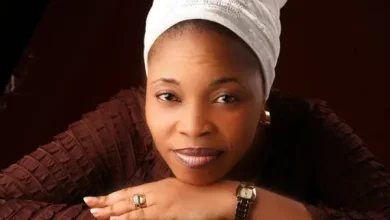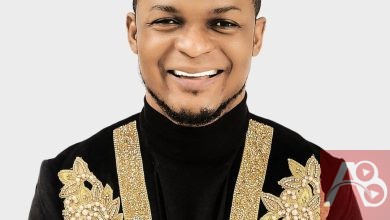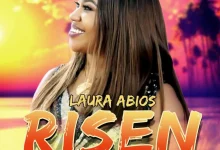Lionel Peterson is a South African gospel musician and preacher known primarily for singing R&B and Gospel worship songs, Lionel Peterson was born on 13 October 1947 in Alexandra, Johannesburg.
Lionel Peterson Biography Wikipedia
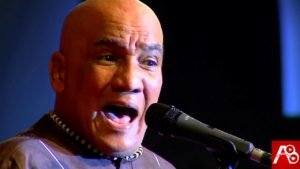 vocals In 1984, Kaizer Chiefs swept the board – winning every trophy in the National Professional Soccer League (NPSL). The cherry on top for the country’s most famous football brand was when they beat arch-rivals Orlando Pirates 1-0 to lift the Mainstay Cup trophy. Their feat inspired a single titled We Are Number One by The Winners. The song captures the electrifying atmosphere on that summer afternoon at Ellis Park Stadium – the cheering spectators and the spirited commentary by the incomparable Koos Radebe of the then Radio Zulu (Ukhozi FM). This unforgettable recording has become one of the holy grails of township pop – still in demand but very hard to find.
vocals In 1984, Kaizer Chiefs swept the board – winning every trophy in the National Professional Soccer League (NPSL). The cherry on top for the country’s most famous football brand was when they beat arch-rivals Orlando Pirates 1-0 to lift the Mainstay Cup trophy. Their feat inspired a single titled We Are Number One by The Winners. The song captures the electrifying atmosphere on that summer afternoon at Ellis Park Stadium – the cheering spectators and the spirited commentary by the incomparable Koos Radebe of the then Radio Zulu (Ukhozi FM). This unforgettable recording has become one of the holy grails of township pop – still in demand but very hard to find.
The Winners’ lead singer was Lionel Petersen and at the time when this tribute chart-topper was released in 1984, he was also associated with Harari. Also known as Mr Music, Petersen started singing at ten, having being inspired by musicians like Elvis Presley, Tom Jones, James Brown, Otis Redding and Wilson Pickett. He started playing as a professional in the late seventies with a number of rock and R&B bands, notably the Miracles and Thunderballs from Johannesburg. He then left Johannesburg and relocated to Port Elizabeth where he joined The Invaders, one of the country’s premier groups in the early seventies.
With them he toured Europe for two months – performing in Germany, Holland and the United Kingdom. The Invaders were formed in 1962 in Uitenhage, Cape Province. The founding members were John Burke (bass), Errol Gobey (rhythm guitar/vocals), Desmond Solomon (lead guitar), Vernal Solomon (drums) and Ike Dolley on vocals. The original line-up lasted for about a year before the Solomon brothers left. They were replaced by Joe Moses on lead guitar and drummer, Dave Burke. Their popularity soon stretched beyond the borders of their small hometown as they performed regularly in neighbouring Port Elizabeth and a number of towns in both the eastern and western parts of the Cape.
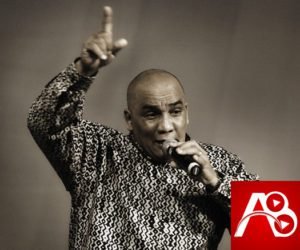 This success boosted their confidence and their home-grown repertoire convinced them that they could stand their own against international talent and competition. Their first single, I’ll Try Again with its B-side, June were released in 1965 as a self-funded recording project. The latter has since become a classic and remains one of their popular songs. The success of this project led to a five-year recording deal with Trutone Records. A studio version of June, their first single under Trutone Records, earned them their first gold record. Other singles including Shockwave, Ice Cream & Suckers and Thoko followed.
This success boosted their confidence and their home-grown repertoire convinced them that they could stand their own against international talent and competition. Their first single, I’ll Try Again with its B-side, June were released in 1965 as a self-funded recording project. The latter has since become a classic and remains one of their popular songs. The success of this project led to a five-year recording deal with Trutone Records. A studio version of June, their first single under Trutone Records, earned them their first gold record. Other singles including Shockwave, Ice Cream & Suckers and Thoko followed.
In 1967 they released two albums, Two Sides of The Invaders and Shockwave. It was while they were performing in Johannesburg around 1969 that they heard about Lionel Petersen. At the time Petersen was performing with The Miracles. Impressed with his singing style, they invited to join him as lead singer. Their 1970 tour of Europe and the United Kingdom confirmed the fact that they were a world-class act. Unfortunately their international success was not a guarantee for the band’s longevity. Their demise started when Errol Gobey left. They released their last hit, There’s a Light, There’s a Way before they disbanded in 1971.
After playing with a number of prominent bands such as The Rockets and The Beaters, he launched a solo career in 1973. Come Back Liza (1973) was his first biggest recording as a solo act. It entered the Springbok Radio Top 20 hit parade on 9 November 1973, charting for seven weeks and peaking at number 12. Subsequent singles also charted between 1974 and 1976. In 1974 he was voted the best male singer at the Sarie Awards, the first black artist to be recognised by the country’s answer to the Grammy Awards. In the early eighties he replaced Funky Masike Mohapi as Harari’s lead singer.
He had previously worked with some of the founding members like Sipho Mabuse (drums) and Om Alec Khaoli (bass) when the Afro-rock supergroup was still known as The Beaters in the seventies. Under the leadership of the versatile Selby Ntuli, in the 1970s they dominated the burgeoning disco scene and even received an invitation to the United States to perform with Hugh Masekela. Unfortunately Selby Ntuli’s death in 1978 made the trip impossible. Harari’s eclectic approach made them an impossible unique act to follow – the ultimate party band with the best musicians in its line-up. One of their all-time favourite singles, Party even entered the American disco charts, a prelude to the international exposure that artists like Sipho ‘Hotstix’ Mabuse would later enjoy.
With this exceptional ensemble Lionel Petersen was involved in the recording of some of their best works as a lead singer. After three years he left and in 1984 he got involved in The Winners project. In 1987 he became a born again Christian and decided to join the ministry of the Rhema Bible Church in Randburg, Johannesburg on a full-time basis as a praise and worship musician as well as a preacher. In his long and illustrious career, he has inspired a number of artists including Ernie Smith, the guitarist and singer from Durban and Johannesburg-born gospel singer, Patrick Duncan. With the church Pastor Lionel Petersen became known as Africa’s ambassador of praise and worship, travelling extensively across the world. He initiated the Lionel Petersen Academy of Worship with the aim of grooming subsequent generations of praise and worship ambassadors.
He has worked with a new generation of artists like Jamaican reggae and gospel singer, Chevelle Franklyn, Neville D and Judith Sephuma. He sang on the soundtrack for the feature film, Hansie (2008) – based on the disgraced cricketer, Hansie Cronje. In 2010 he was a judge on the first season of the ONE Gospel reality competition Shine, presented by Zanele Mbokazi on a DStv music channel alongside fellow judges Deborah Fraser, Neville D and Abe Sibiya. Unfortunately, in recent years he has been suffering from poor health which caused both his legs to be amputated. In 2017 the Lionel Petersen benefit concert at Rhema Bible Church featured a number of gospel artists that included Judith Sephuma, Kabelo Mabalane, Victor Masondo, Solly Mahlangu, Ernie Smith, Marlon Green, Patrick Duncan, David Klassen and Trevor Sampson.
Discography
Albums
• Mr Music (Plum, 1974).
• I’ll Take You Where the Music’s Playing (1975).
• Soul Brother (Plum, 1975).
• That’s the Way (1976).
• Gold (Plum, 1976).
• Flying Out – Harari (Gallo, 1981).
• Home Brew – Harari (Rufaro Records, 1982).
• Feel Free (Shandel, 1986).
• Rejoice Africa (Integrity, 1991).
• Day By Day (Harmony Records, 1999).
• The Heart and Soul of the Invaders (1998). Compilation album.
• Just Hymns (Rhema, 2002). Featuring Adlan Cruz.
Singles
• Come Back Liza/Freight Train (CCP, 1973).
• I Need A Little Love/I Can Sing It (Plum, 1973).
• Private Number/For Love (Plum, 1974).
• Try A Little Love/ Make It, Don’t Break It (Plum, 1974).
• I’ll Take You Where The Music’s Playing/Dolly My Love (1975).
• Bouncy, Bouncy, Bounce (Plum, 1976).
• That’s The Way/ Black Queen (Plum, 1976).
• I’ll Keep On Coming Back/Freight Train (Plum, 1977).
• Sweets For My Sweet (RCA, 1977).
• Stay (Bullet, 1979).
• Please Don’t Pass Me By (Bullet, 1980).
• We Are Number One – The Winners (EMI/CCP Records, 1984).
